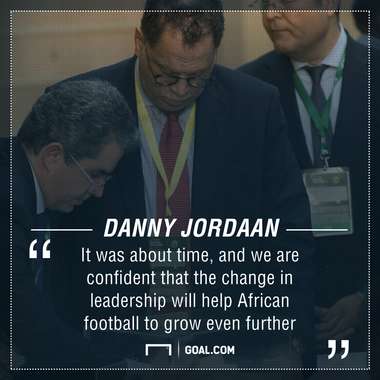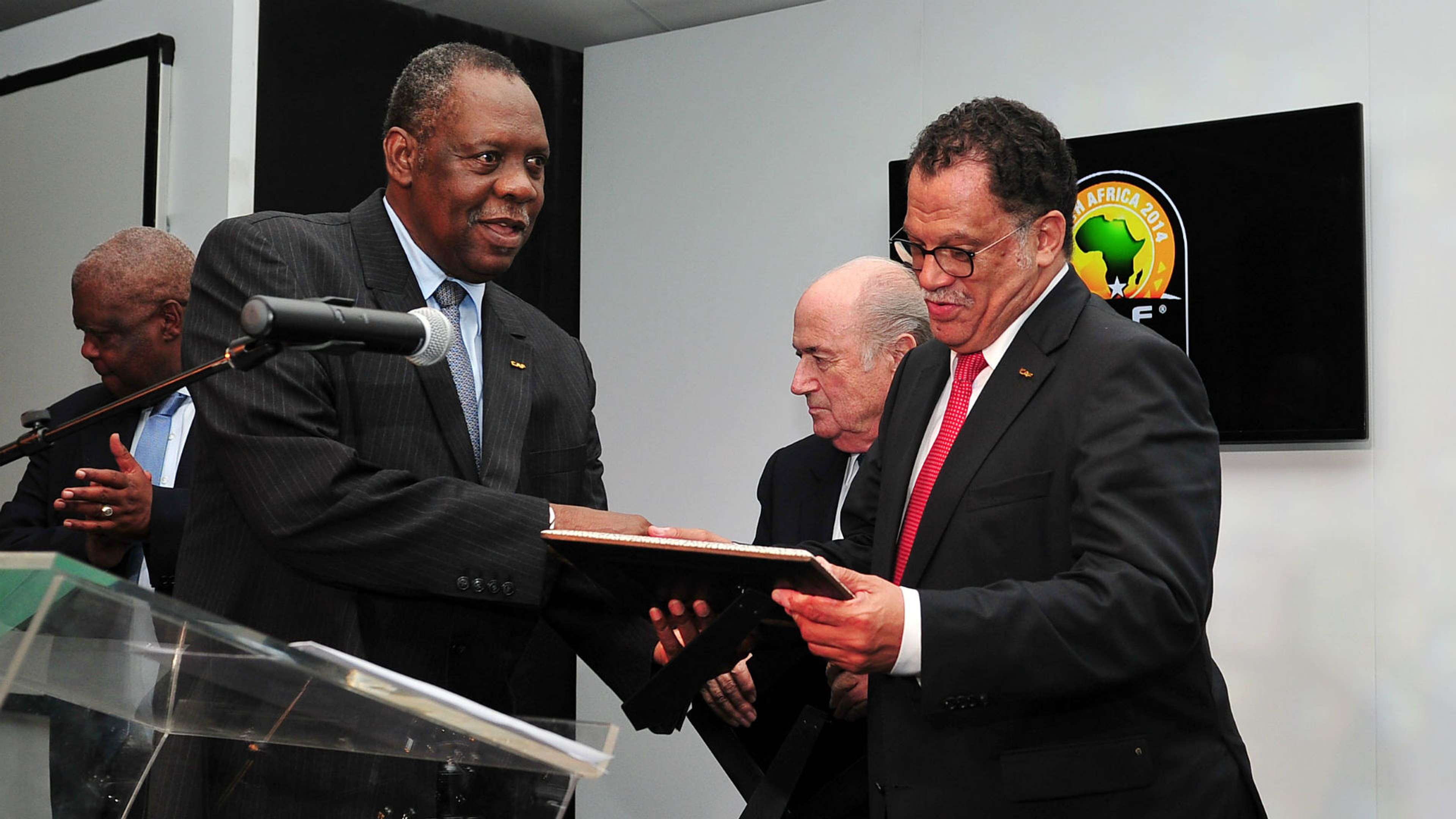South African Football Association (Safa) president Dr Danny Jordaan has expressed his delight at the ascendency of Ahmad Ahmad to the highest position at Caf.
Ahmad was elected as the new Caf president on March 16, 2017, unseating long-serving predecessor Issa Hayatou, who had been holding the position for almost three decades.
“It simply means the end of a 28-year era, and the start of a new regime, not only for South Africa or Cosafa, but for Africa as a whole,” Jordaan told Goal.
“The new president will definitely bring change and improvement to the federation, but that we can only achieve if we work as a team. The distribution of revenues to various associations is another thing that will be looked at for example, and I think there will be more changes and improvements under the new president,” he said.
Jordaan confirmed that the Cosafa region, which has 14 members including Safa, played a huge role in Ahmad becoming the new Caf president.
He said the Cosafa region felt disempowered under the leadership of Hayatou, citing the allocation of Africa Cup of Nations (Afcon) tournaments as one of the factors they felt the previous regime needed to be replaced. Jordaan revealed that the Cosafa region had significant influence in ousting Hayatou.
“It had significant influence. As you know, the Cosafa region has 14 members, and to be elected as Caf president, you need 28 votes. So, if you have Cosafa behind you then you already have 50 percent of the votes,” Jordaan said.

“One of the main reasons why the previous regime took so long in power was because Cosafa members were not united going into Caf presidency elections, but we spoke about it and everyone agreed that African football needed a new leadership that will bring about change,” he said.
“Not to say Mr Hayatou was a bad leader, he contributed immensely to African football in the 28 years he served as president, but there are certain things we felt should change, and they were not going to change unless a new president was elected,” he continued.
“If you look at the allocation of Afcon tournaments, you’d realize that West African countries have been preferred more than countries in the Cosafa and Cecafa regions, excluding South Africa in 2013 of course – Equatorial Guinea and Gabon in 2012, Equatorial Guinea in 2015, Gabon in 2017, Cameroon in 2019, Ivory Coast in 2021 and Guinea in 2023. So, those are some of the things we looked at, and decided that change was needed. In that way, we will have to come up with ways to ensure that everyone is considered going forward,” he explained.
“Now, there’s a new president and his two deputies are new. So, it was about time, and we are confident that the change in leadership will help African football to grow even further. We will have our first meeting in May where we will be outlining new plans for the next four years. I don’t want to get into every detail, but things like revenue, broadcasting rights, advertising, men, junior and women competitions will be discussed in that meeting.
“Also some of the regulations that guide the federation will be revisited. For instance, under the previous regime, one would have to be a member of the Caf executive to be able to stand for Caf presidency whereas at Fifa there’s no such provision or requirement; anyone can stand for any position at Fifa. So there is a lot of work to be done, but we are all confident that we will achieve our objectives,” Jordaan revealed.
